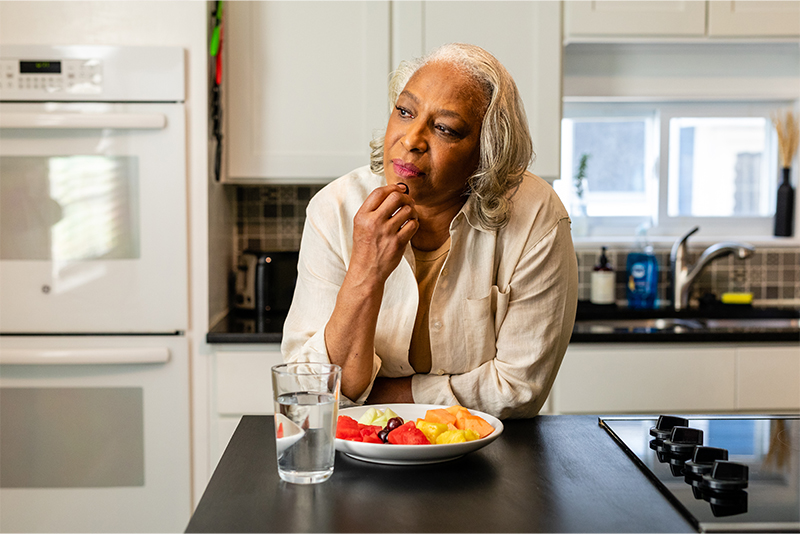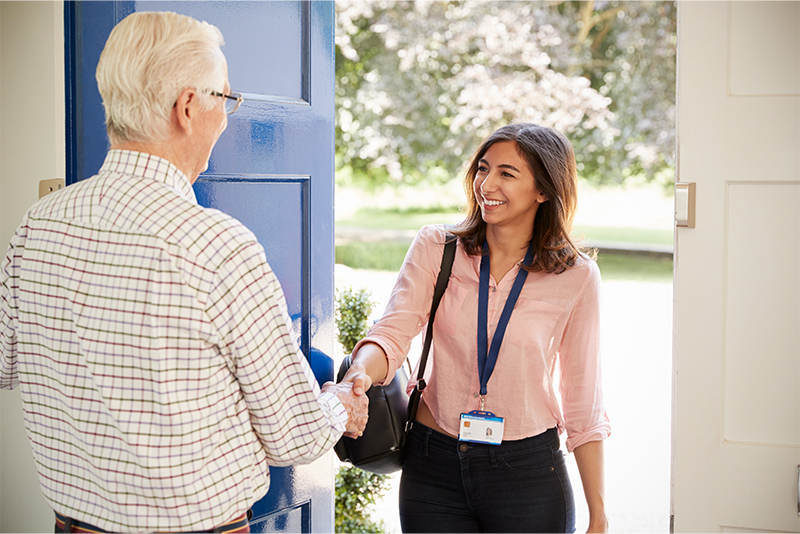The Importance of a Daily Routine for Someone With Dementia

Have you ever woken up from a dream feeling completely disoriented? The dream seemed so real, and it takes a moment to regain your bearings. For someone with dementia, this disorientation is a part of everyday life. One highly effective way to help is to provide as much stability as possible, and one of the best ways to accomplish this is by sticking to a daily routine for someone with dementia.
How Can a Routine Help Someone With Dementia?
Short-term memory loss makes it challenging for someone with Alzheimer’s to learn and remember new things. A familiar routine helps build self-confidence, reinforce a sense of independence, and reduce anxiety.
To establish the most comfortable routine for a loved one with Alzheimer’s disease, try the following:
- Follow their lead. Retain any routines the person already has built: a morning shower before breakfast, meals at the same seat at the table as always, an afternoon TV program, a walk after dinner, etc.
- Choose activities that are tied to lifelong interests. Consider the person’s particular interests and incorporate those in some manner into their daily activities: fishing, music, gardening, crocheting, etc.
- Make it meaningful. Include time every day for responsibilities that strengthen the person’s self-worth and sense of purpose, based on their abilities: folding laundry, sorting papers, mixing a salad, etc.
- Modify as needed. Over time, as the disease progresses, the individual’s ability level will change, which makes it harder to accomplish parts of their routine. The goal should be to regularly strive to provide as many opportunities for independence as you possibly can, even when modifications are needed.
Of course we all know that life does not always allow us to adhere to a predictable routine. Family caregivers need and deserve to take time off from their care duties for self-care, whether it’s just a couple of hours weekly or an extended vacation. It can be great for the senior in your care to have a respite caregiver step in before taking time away, incorporating them into the routine whenever possible. That will likely make it simpler for you to step away, knowing the older adult is already comfortable and familiar with their professional caregiver.
The most effective dementia care requires specialized training and expertise. Our dementia caregivers are experts in providing innovative, patient care and alleviating the difficult symptoms of the disease, and we are here with as much or as little assistance as you need.
We can ease some of the more challenging effects of the disease, such as:
- Wandering
- Aggression
- Agitation
- Confusion
- Anxiety
- Sundowning
- Inappropriate behaviors
- And more
Contact us any time at (866) 940-4343 for a free in-home consultation for additional information about our dementia care services in Novato, San Rafael, Petaluma, and throughout the Bay Area.








Leave a Reply